Does funding need a rethink for mental health services?
- 06 October 2017
"Everyone goes through some form of mental health - it's not every day the sun can shine. Everyone goes through a bad day or a good day - no one's perfect." Frank Bruno MBE, a former heavyweight champion and now a champion of mental health, spoke candidly at our Mental Health: Making the Forward Plans a Reality conference.
Centre for Mental Health's Andy Bell underlined how important it was for those working in and designing service improvements to understand what it feels like to be sectioned under the mental health act and Bruno pulled no punches.
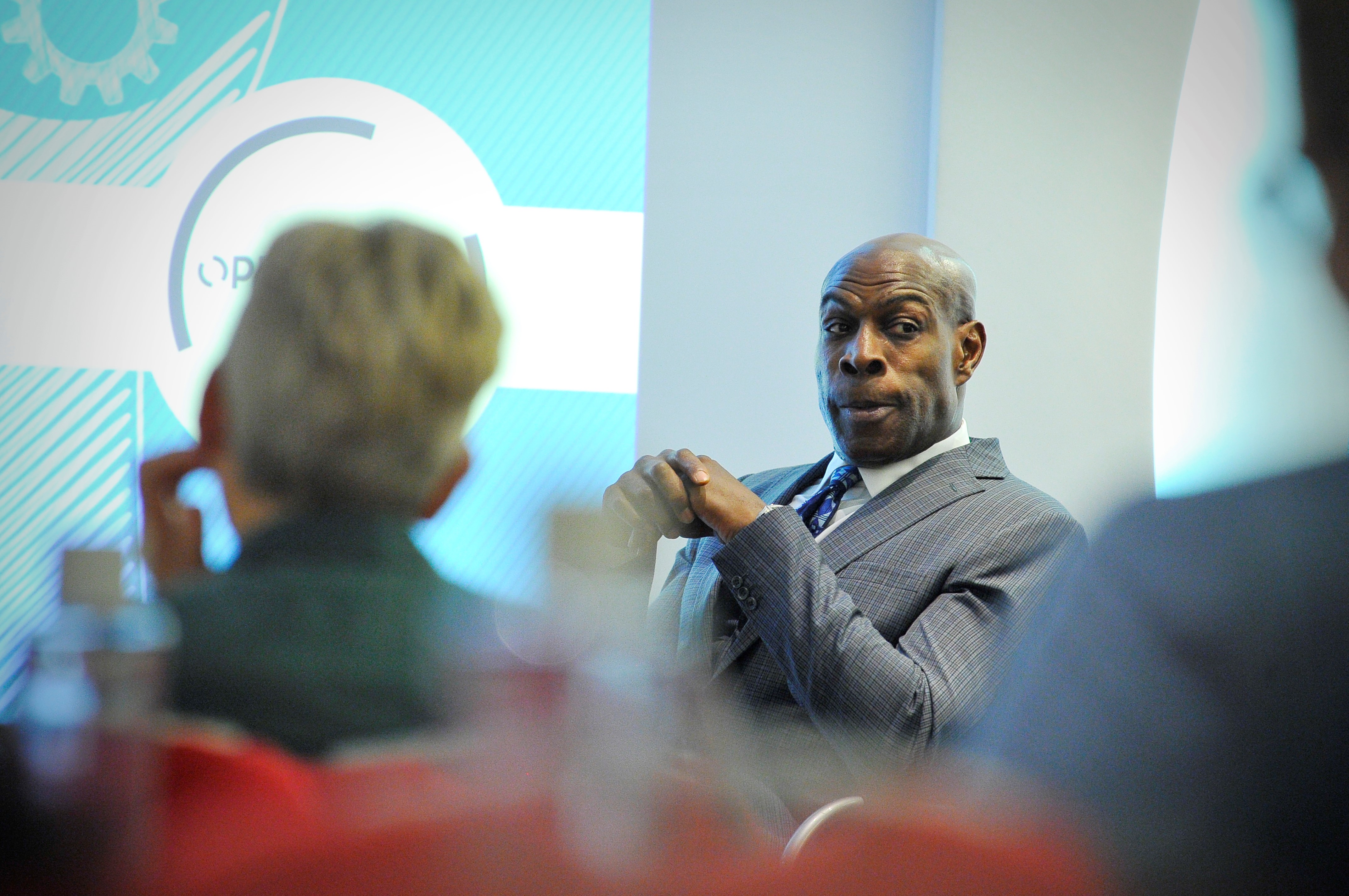 "The way I was treated when I was sectioned and the medication was very cruel," Bruno shared with the audience his experience of being sectioned in 2003. "I looked out and they were all there - police, ambulance, press, nosey neighbours - I think it's very shameful for a person when the police are there."
"The way I was treated when I was sectioned and the medication was very cruel," Bruno shared with the audience his experience of being sectioned in 2003. "I looked out and they were all there - police, ambulance, press, nosey neighbours - I think it's very shameful for a person when the police are there."
"When I had the break-up I couldn't handle it, the computer shut down. I agree with the sectioning but I didn't agree with the medication as it made me worse. I couldn't get things together, I was on another planet. People suffer from side effects, I didn't know that they would bully you, intimidate you, pressuring you to take things - it's very unfair and very wrong." Frank Bruno MBE
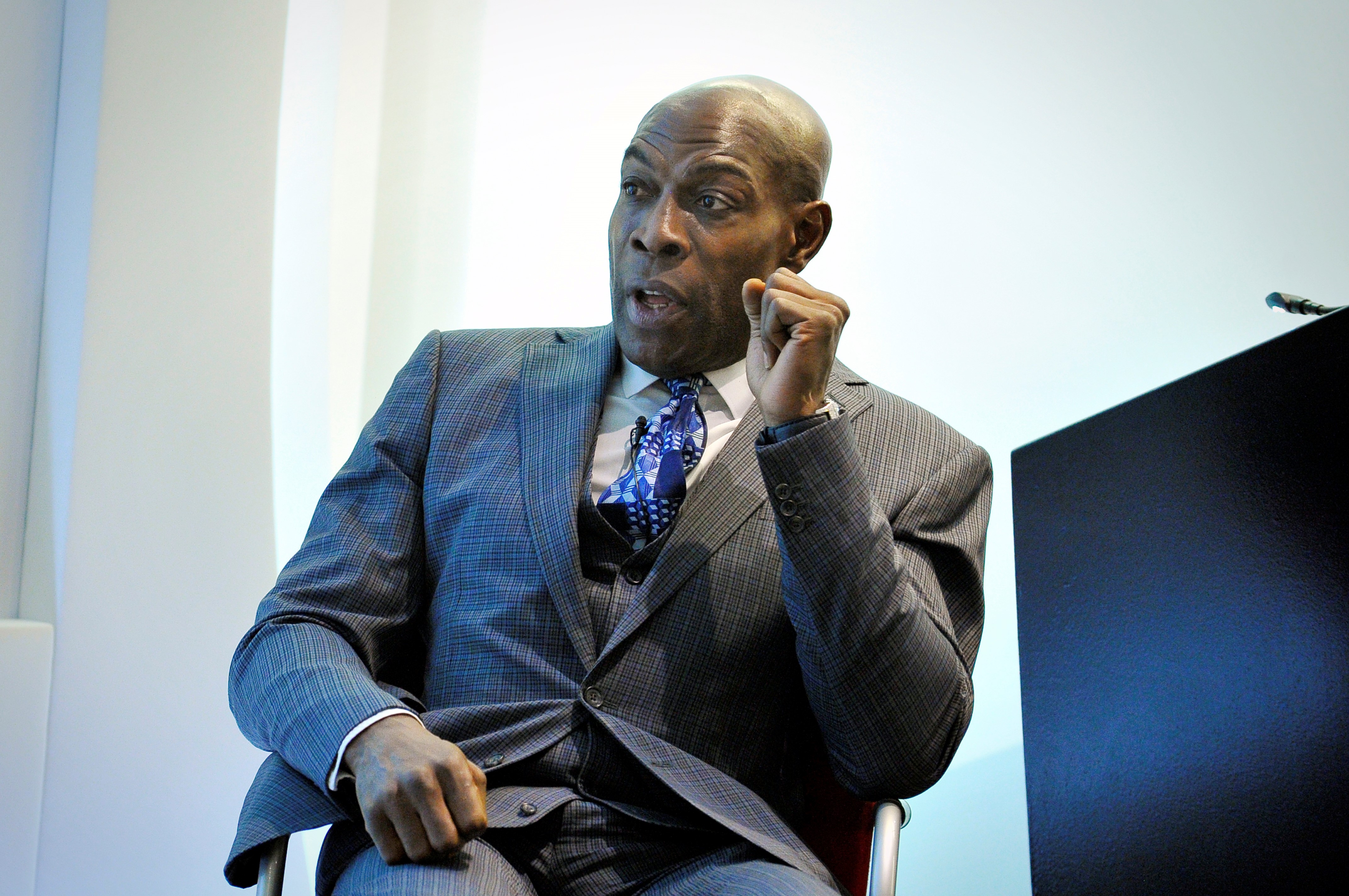
Bruno described as a service user some of the poor treatment he had received in the past, such as care workers winding patients up and a time when a councillor asked if he would be safe left alone with him.
"That was very draining, he made me feel like a monster. The people that came to my house were poor, they were degrading. You're supposed to be looking after people. Other councillors had care it on the button. I had a bad apple." Frank Bruno MBE
In a revealing on-stage interview Bruno talked about his childhood, life after the boxing ring and his thoughts on what good mental health care looks like.
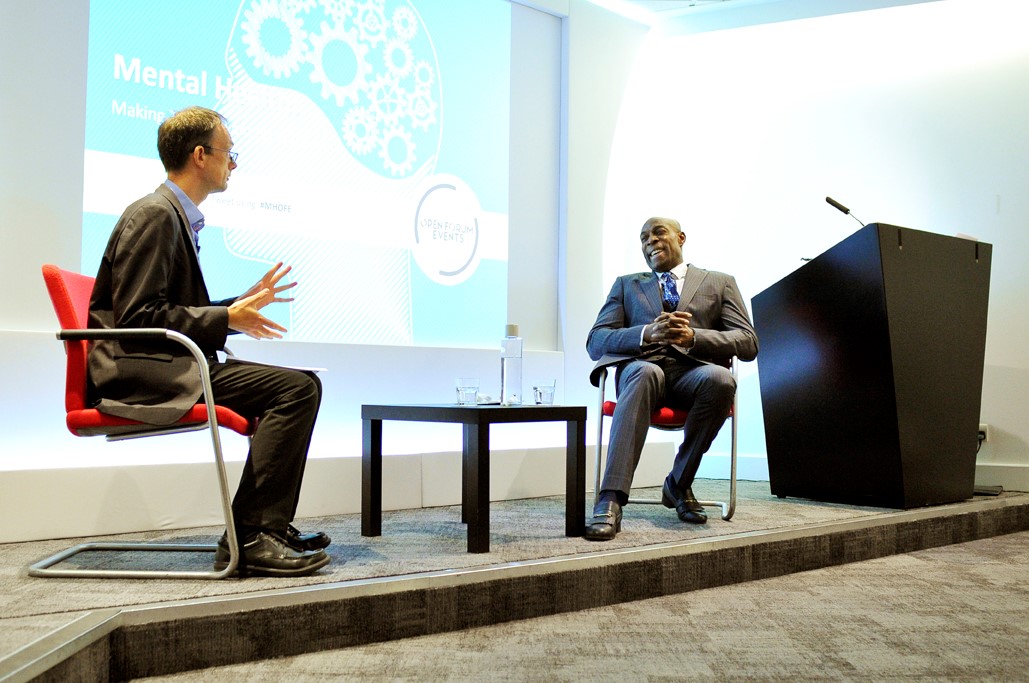
"Chapter one should be - how are you feeling? What are you going through at the moment, what's your state of mind? Get to the core of the problem or the root to why people are feeling like they are. Mental health effects people in all different ways - talk to someone." Frank Bruno MBE
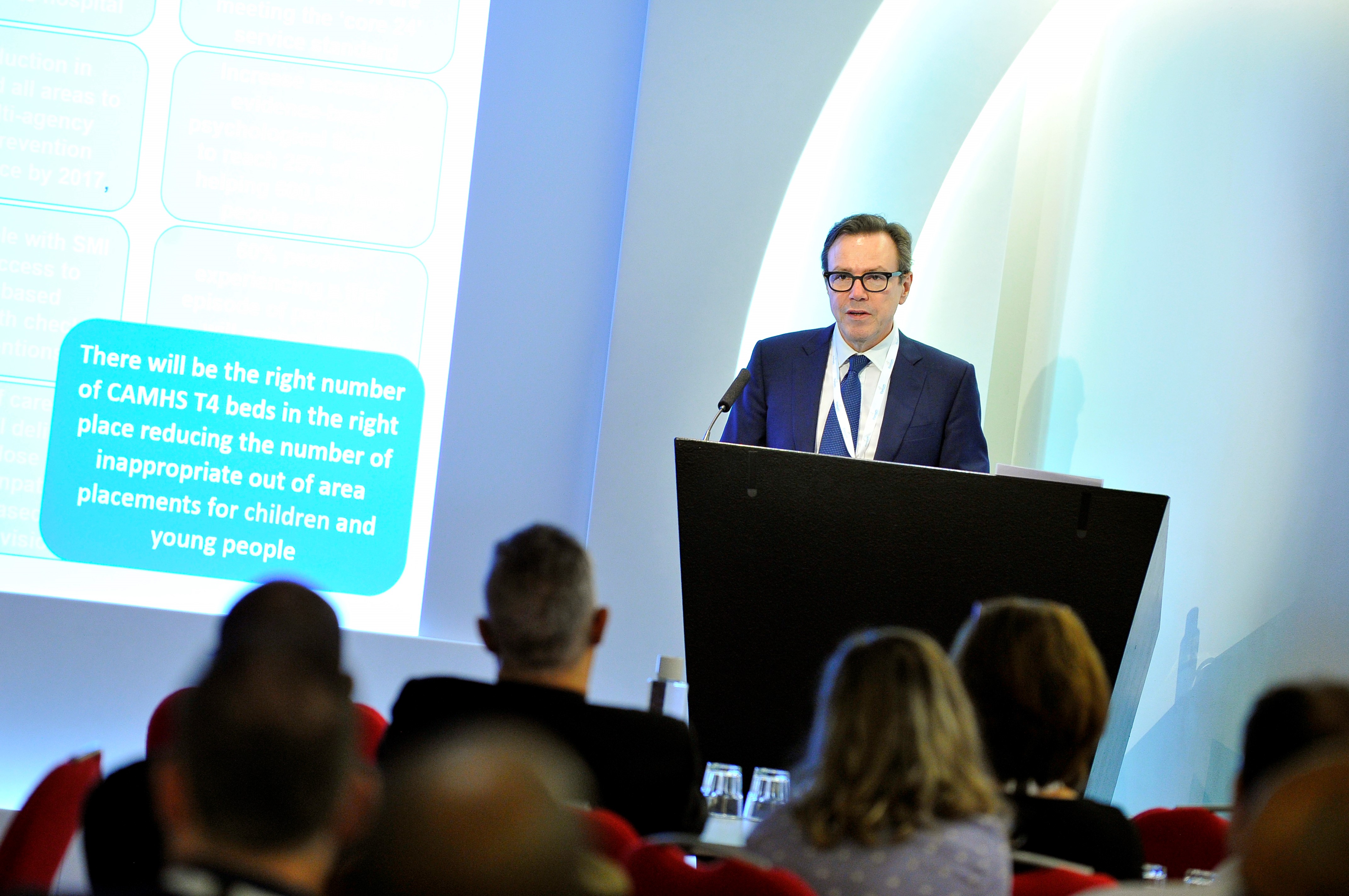
Professor Tim Kendall, National Clinical Director for Mental Health at NHS England, provided an update on progress with implementing improved mental health care nationally with the Five Year Forward View. Professor Kendall discussed the progress made but also acknowledged that funding had been too slow in reaches some areas of England and parts of the frontline. He stressed the need to integrate mental health across health services and how the FYFV is about providing better alternatives to institutional care.
"People want their mental health sorted where they turn up. Money tied up in acute Out-of-Area Placements needs to be reallocated, new crisis teams should be there." Professor Tim Kendall
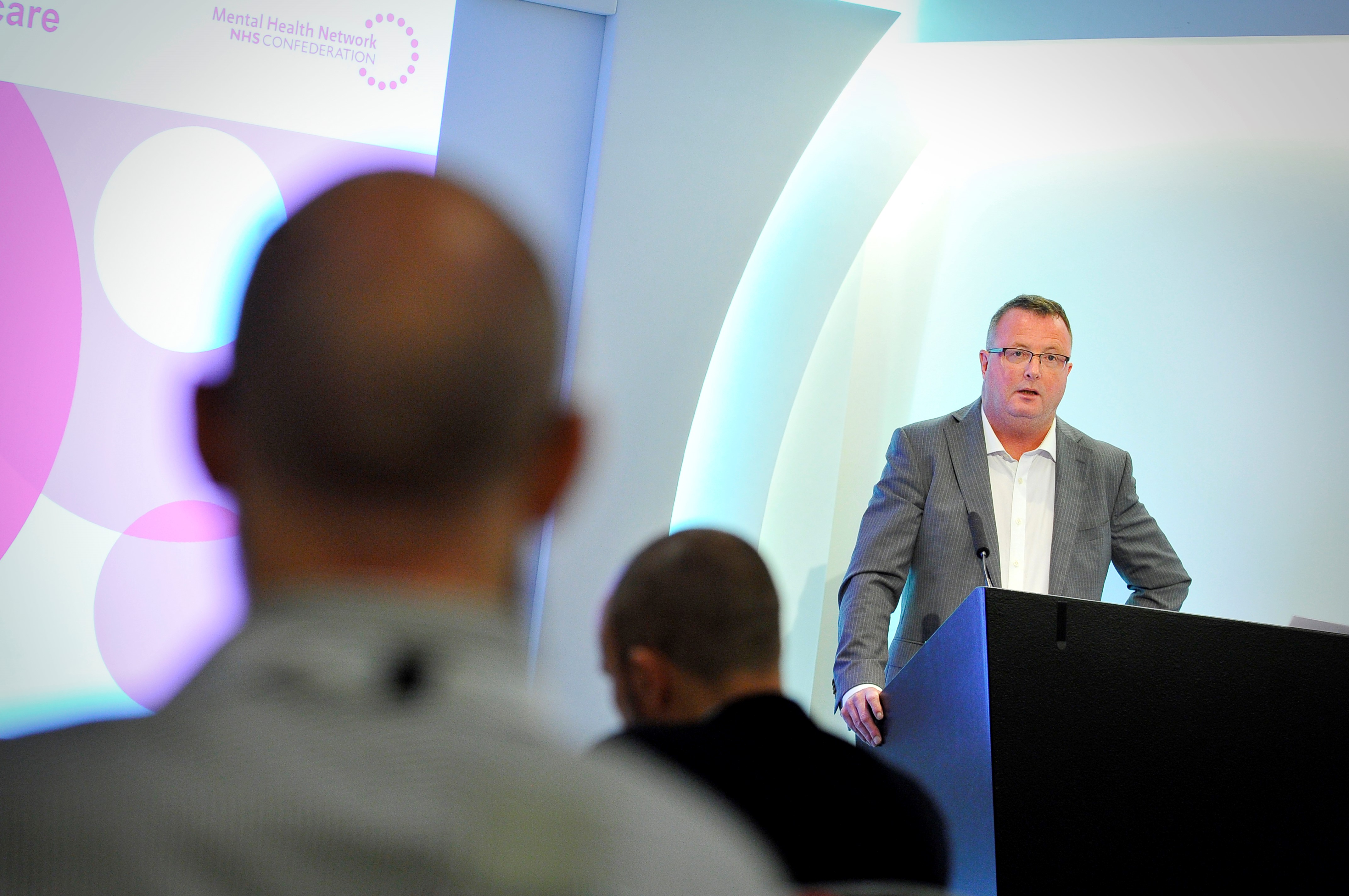 Better integration of care was also key focus of Sean Duggan's talk who told the audience that improved access to care should be about people seeing the benefits. The Chief Executive of the Mental Health Network also raised concerns about investment, telling the audience that the aims of the FYFV would not be achieved if the system continued to take funding out of social care. Money drives integration and collaboration, he said, and local plans should focus on bringing funding and resources together.
Better integration of care was also key focus of Sean Duggan's talk who told the audience that improved access to care should be about people seeing the benefits. The Chief Executive of the Mental Health Network also raised concerns about investment, telling the audience that the aims of the FYFV would not be achieved if the system continued to take funding out of social care. Money drives integration and collaboration, he said, and local plans should focus on bringing funding and resources together.
"With co-production we are the envy of the sector, we are good at it. If you see everything through the eyes of the service user's eye it will drive better collaboration." Sean Duggan
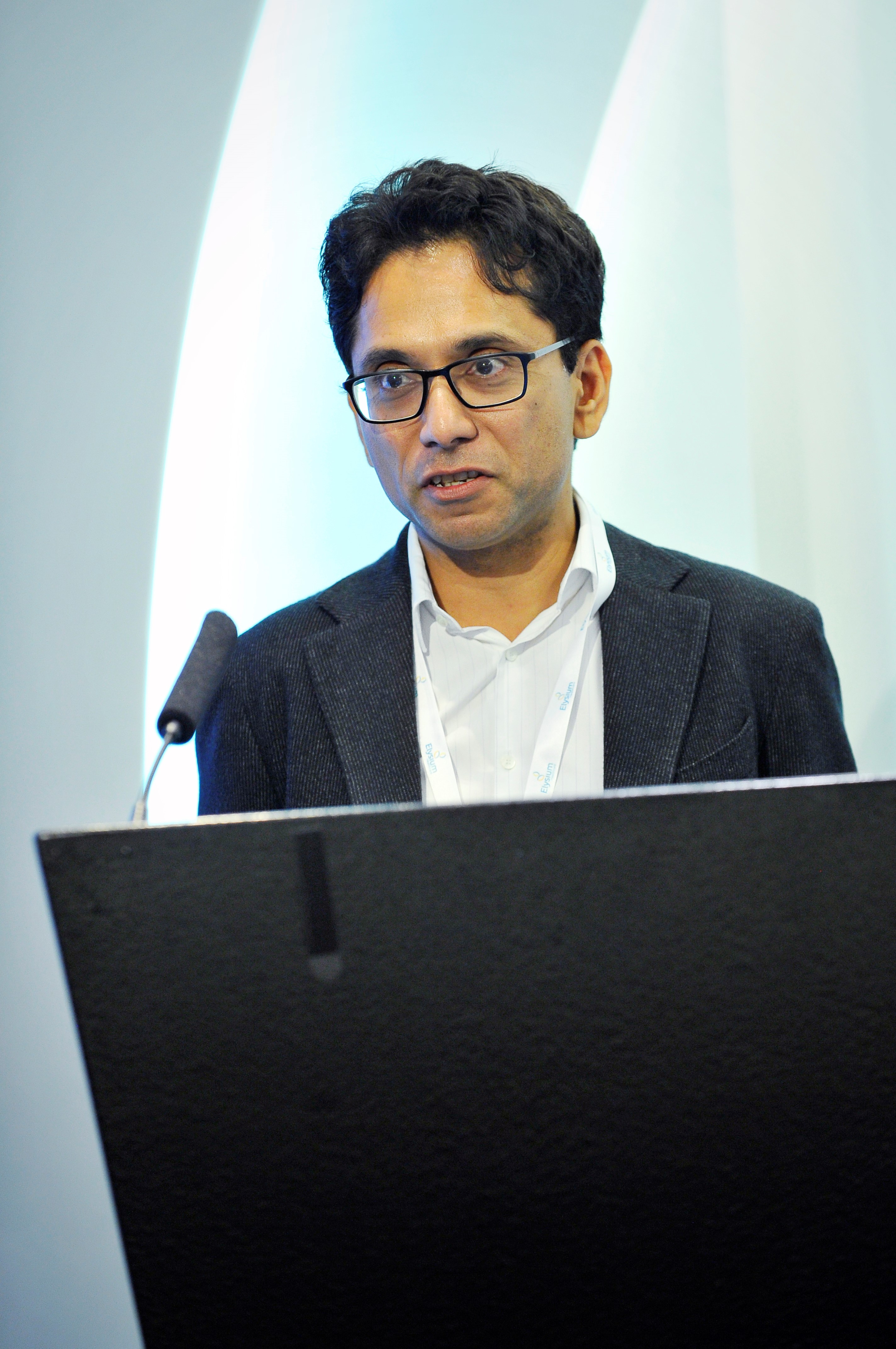
Alongside highlighting the challenges Duggan also said the sector should also celebrate the results saying services had achieved masses in the last few years. The following presentation picked up on some of the challenges for providers, Elysium Healthcare's Executive Medical Director Dr Quazi Haque, explaining that the Health and Social Care Act had resulted in unnecessary interruptions of funding flow. Dr Haque outlined some of the drivers for regional variation in terms of ambition, ethos and outcomes showing that commissioning was not consistently linked to local need.
By providing better integration of services and providers out of hospital care closer to the service user Dr Haque demonstrated how out-of-area care had been reduced by 45%, through building up a range of providers and secure and alternative community provision.
"Length of stay is optimal when care is linked with providers." Dr Quazi Haque
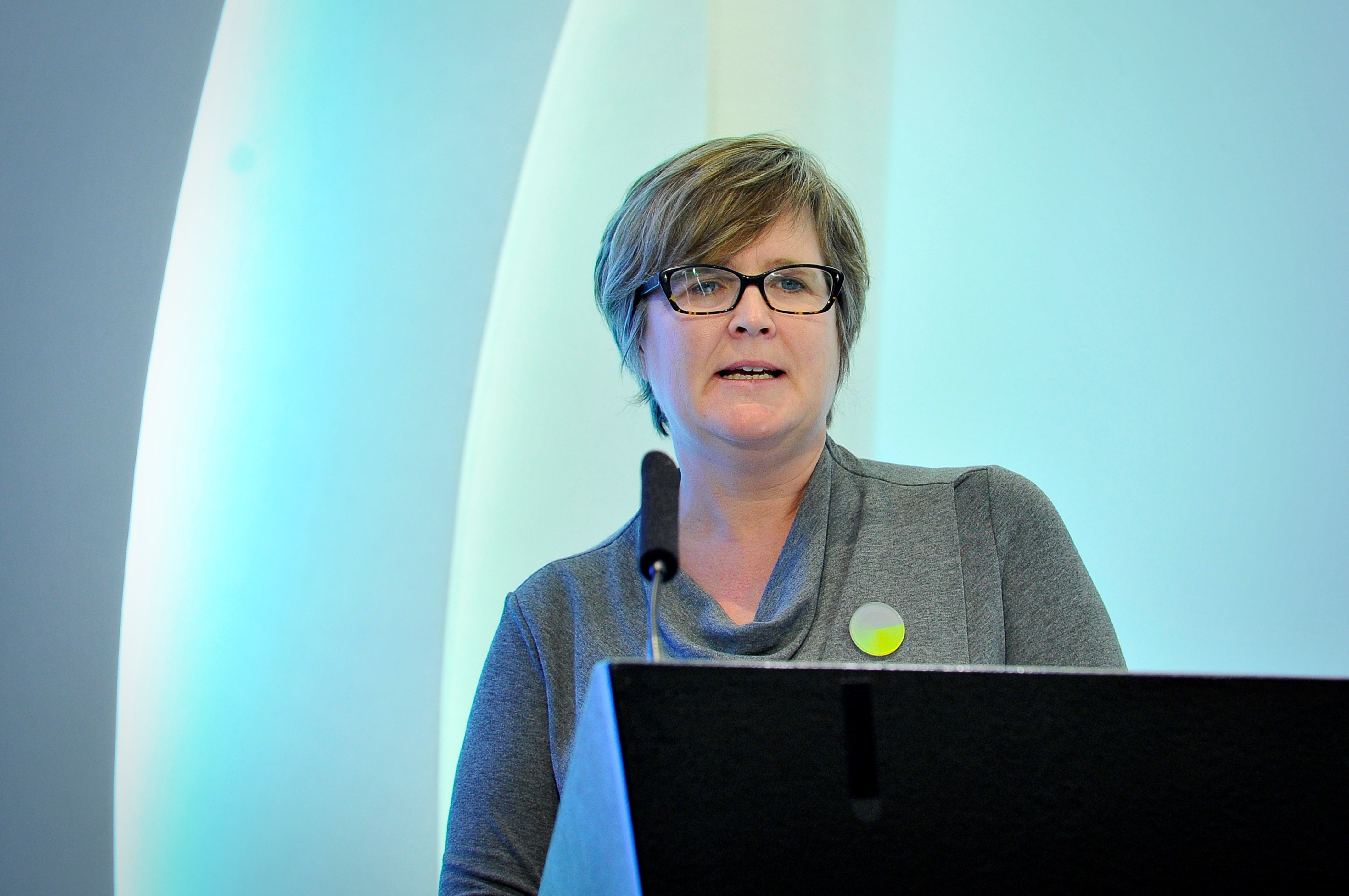
The reality on the frontline of mental health NHS Trusts also made for sobering thoughts but again there were strong grounds for optimism. The findings from the recent 'The State of Mental Health Services' report from NHS Providers were shared by Saffron Cordery, Director of Policy and Strategy. Cordery highlighted the seven key concerns of trusts that had echoes of the day's previous discussions including demand outstripping capacity, funding not reaching the frontline, challenges accessing services, skills gaps in the workforce and STPs and mental health not being well developed. Cordery told the audience that commissioning was an area where reform was badly needed and it is currently highly fragmented.
The report findings showed that 80% of chairs and CEOs of all surveyed trusts were concerned that they will not receive additional money they had been promised. A worrying 57% of trusts said that they cannot meet patient demand in CAHMS. However there positives and Cordery said that the FYFV was a ray of hope and had already made an impact.
"There need to be a sense of realism and honesty on what can be delivered with the current funding. Money isn't reaching the frontline, dedicated funding is needed to make the Five Year Forward View a reality." Saffron Cordery
 Public Health England's Helen Garnham made the compelling social, economic and healthcare imperative to improve mental health services. Garnham said we need to stem the flow and prevent people needing services and treatment with PHE looking at key places where a difference can be made. One of those areas was suicide prevention, with the shocking statistic that suicide is the leading cause of death in middle aged men, with one death every 90 minutes in 2016.
Public Health England's Helen Garnham made the compelling social, economic and healthcare imperative to improve mental health services. Garnham said we need to stem the flow and prevent people needing services and treatment with PHE looking at key places where a difference can be made. One of those areas was suicide prevention, with the shocking statistic that suicide is the leading cause of death in middle aged men, with one death every 90 minutes in 2016.
"We have the evidence, data and guidance - now we need to drive change locally." Helen Garnham
Housing support services for recovery and wellbeing was another key talking point and delegates heard from two exemplars leading service transformation in practice. Home Group's Clinical Lead for Mental Health Fiona Ramsay shared solutions of step up and step down services and a holistic approach to care for people outside of hospitals that has made treatment a less traumatic process.
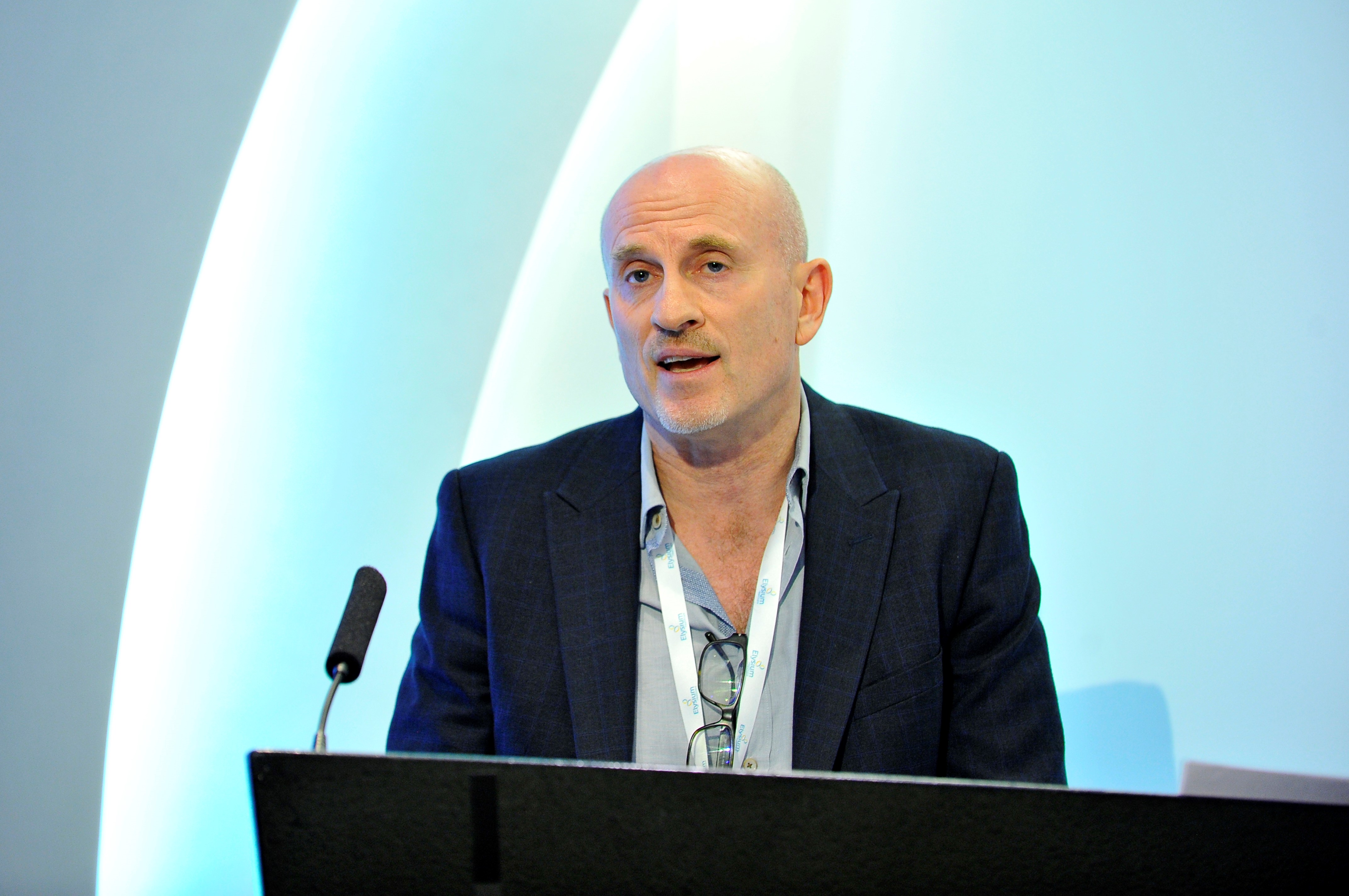
Chris Hampson, Chief Executive of Look Ahead, highlighted the positive integration of service provision that has seen housing and social care teams working side-by-side with clinical staff. Experts by experience and co-production were also key elements and, in line with FYFV aims, services were being provided right throughout the care pathway. Hampson shared the results of a pilot service with SLAM that reduced bed blocking through a network of housing providers, easing pressure on clinical staff and helping to improve outcomes. Concerns were again raised about variations of care and pockets of best practice.
"Why aren't we doing more of it? We need enlightened commissioners, providers and leaders. It's not currently systematic." Chris Hampson
 The untapped benefits of data, technology and innovation was a core theme and Rob Brougham of Ieso Digital Health demonstrated how an online digital medium had expanded the accessibility of therapy, connecting the right patient with the right therapist. Therapy technology had helped treat over 10,000 patients provided a large, growing and real world evidence set. Brougham said that technology had proven to enable accessibility and allow a greater focus on quality, such as reducing waiting times.
The untapped benefits of data, technology and innovation was a core theme and Rob Brougham of Ieso Digital Health demonstrated how an online digital medium had expanded the accessibility of therapy, connecting the right patient with the right therapist. Therapy technology had helped treat over 10,000 patients provided a large, growing and real world evidence set. Brougham said that technology had proven to enable accessibility and allow a greater focus on quality, such as reducing waiting times.
"Reduced waiting time is a clear indicator of improved outcomes." Rob Brougham
Next steps or technology included machine-learning techniques and AI guides to help therapists in real time, allowing access to combined knowledge of hours of therapy. There may be challenges for the sector but, for what was once labelled the Cinderella service, the future has perhaps never looked brighter for mental health services.



